Discussion with Ruth Marie Jarman, Outside Director - Promoting Career Development and Work-Life Balance for Female

Employees discussed their efforts to reform work styles, including improving the work environment and work-life balance with Outside Director Ruth Marie Jarman.
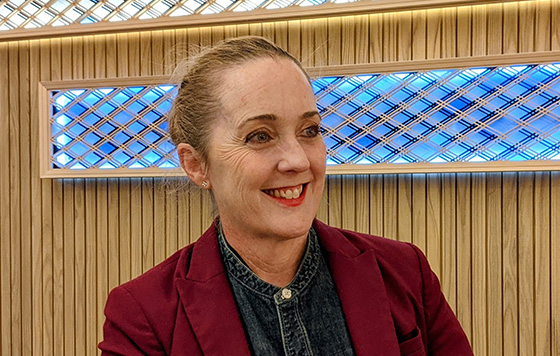
Ms. Ruth Marie Jarman
Fujibo Holdings, Inc.
Outside director, Jarman International KK CEO
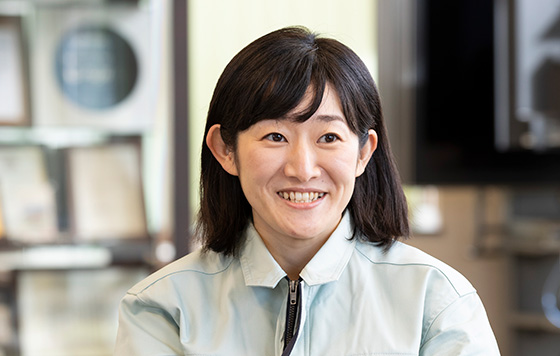
Ms. K
Fujibo Ehime Co., Ltd.
Technology Development Division
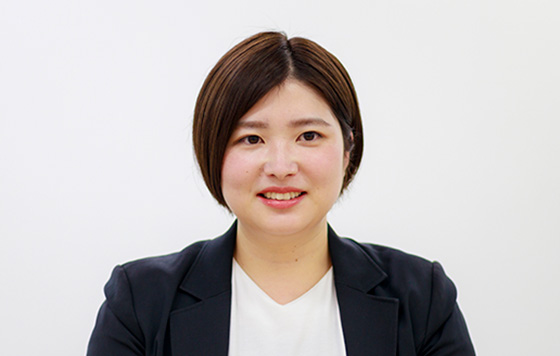
Ms. O
Fujibo Holdings, Inc.
Intellectual Property Office
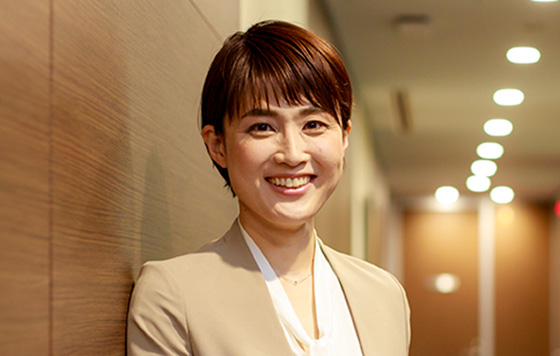
Ms. T
Fujibo Holdings, Inc.
Human Resources Division
Current Job and Work Style
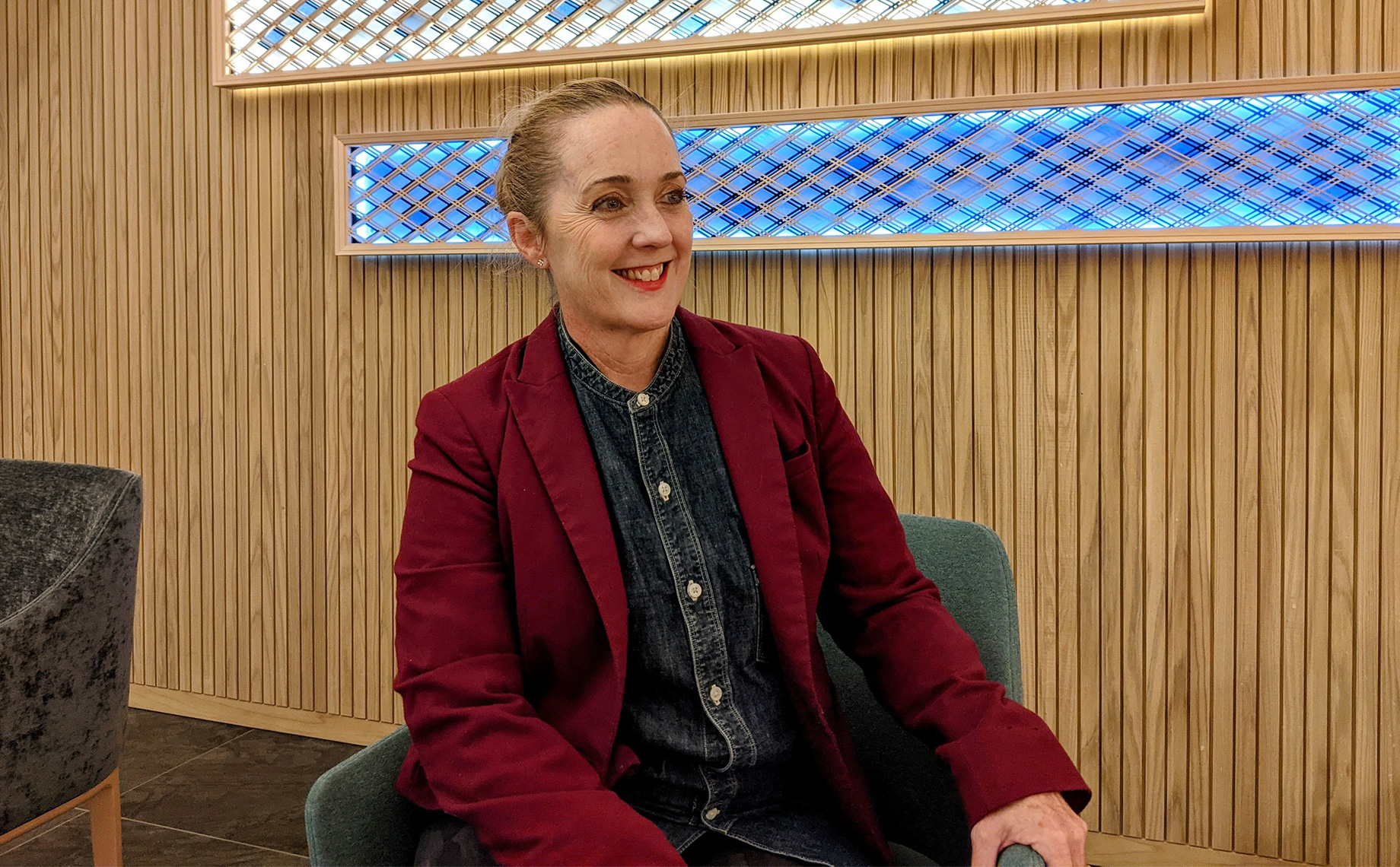
Jarman: As an outside director, I'd like to support creating an environment where female working in various workplaces of the Fujibo Group can work comfortably and actively.
K: I joined the company in 2009 and have involved in the development of Polishing Pad for ultra-precision work for semiconductors as a section chief. I gave birth in 2015, and after taking a year of parental leave, I returned to my current department.
O: I joined the company in 2018. I've been involved in filing patent and utility model applications for newly developed Polishing Pads as well as searching for related patents.
T: I started working here in 2018 as a mid-career hire. As a manager in the newly established HR Strategy Group in the HR Division. I'm in charge of recruitment and human resource development. In my private life, I am challenged by trying to raise my three children.
Challenges for Female in Work-Life Balance
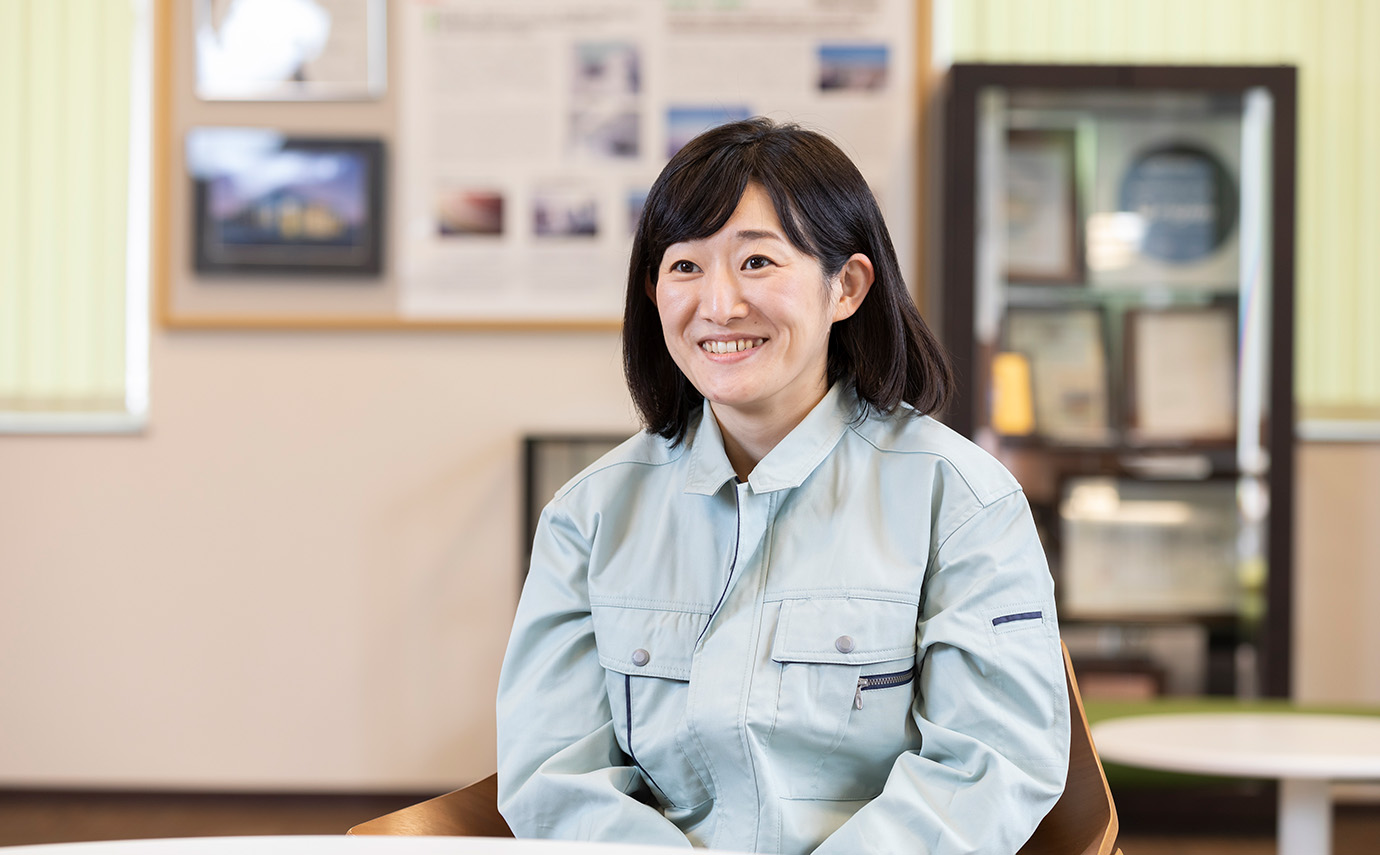
T: Ms. K, you've returned to work after childbirth and child rearing. How do you balance work and family life?
K: After giving birth, I had to limit my working hours, while my job became more demanding. I'm seriously thinking about how to balance work and life, and am trying to "reform the way I work" with the help of others. I feel that my experience can be a case study for Fujibo's work style reform.
T: One of my three children is still very young, and as time constraints increased for picking up my child, etc., self-management such as work arrangements has become more important.
K: We've clarified work procedures and share information so that even if a child suddenly has a fever and needs to take time off, I can ask my colleagues to cove for me.
O: So that's what you need to do. My department has three female among many men. People say it's difficult for female to work, but I've never felt disadvantaged being a woman, which is a good thing.
T: That's true. Fujibo still has few female employees, but I don't feel that I'm disadvantaged in my work or that I'm not acknowledged because of my gender.
Jarman: When I had my first child 27 years ago, babysitting wasn't common in Japan, and I had the impression that in many families fathers worked and mothers raised their children. Recently, I feel that Japanese men's attitudes have changed. This is partly due to the fact that many companies have reformed the way they work, making it easier for men to take parental leave. Diversity is becoming more important in the workplace, and we need to think about how to improve the work environment so that everyone can actively perform. In this sense, it is important for the next generation of employees to have "role models" like Ms. K and Ms. T who are leading the way in improving the work-life balance.
Support Female's Empowerment in the Workplace
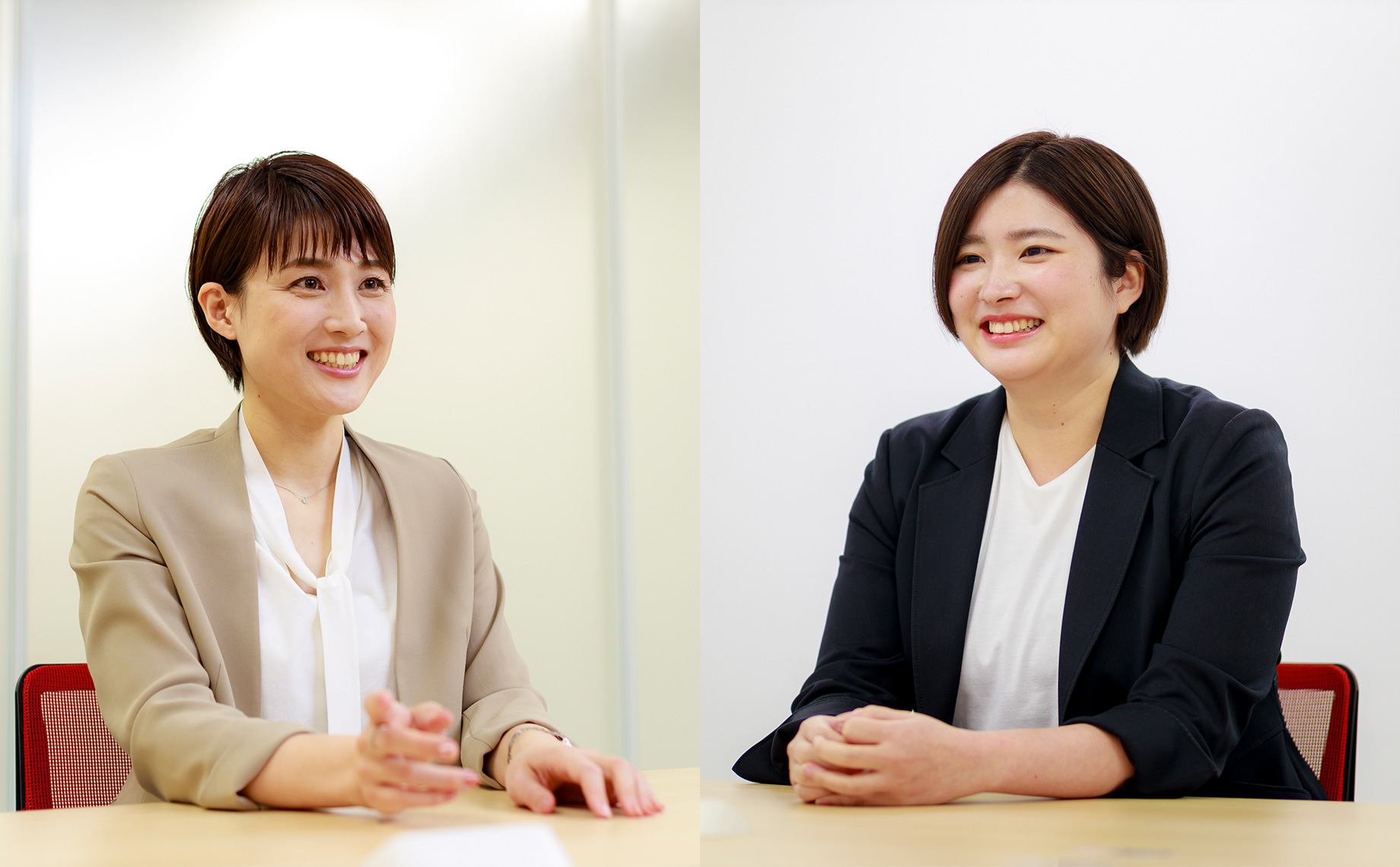
Jarman: Do you have any goals or motivations for your work?
T: As Ruth said, we need to build a base where the next generation of female joining us can also play an active role.
O: I feel that our company has a well-developed system and a good working environment. I'd like to review the way we've been working and create an environment where we can enjoy our work more.
K: As a female manager, I am trying to figure out how to raise and manage people. My goal is to establish my own management style, including communication as a female leader, which is different from that of male leaders.
Jarman: The image of diversity held by many men working in Japanese companies is to treat men and female the same. I think they have a misconception that equality means treating female exactly like men. But, for example, in a workplace where there are few female, it is more comfortable to work in a way that considers the unique needs of female, such as slightly changing how things are communicated.
K: I'd like to keep that kind of thinking in mind when I become a leader. I don't have any female bosses yet. So, I was looking forward to talking with a pioneer female leader today.
T: I think we also need leaders who are supportive and dependable like a mother or older sister. Ruth, may we continue to ask for your advice when we face any difficulty?
Jarman: Sure. That's what I'm here for. Absolutely!